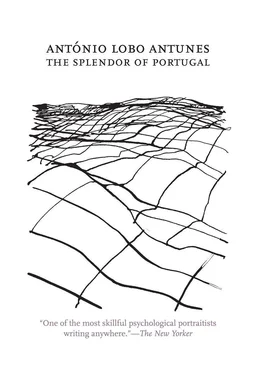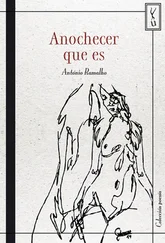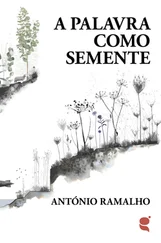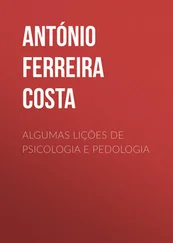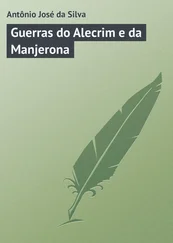António Antunes - The Splendor of Portugal
Здесь есть возможность читать онлайн «António Antunes - The Splendor of Portugal» весь текст электронной книги совершенно бесплатно (целиком полную версию без сокращений). В некоторых случаях можно слушать аудио, скачать через торрент в формате fb2 и присутствует краткое содержание. Год выпуска: 2011, Издательство: Dalkey Archive Press, Жанр: Современная проза, на английском языке. Описание произведения, (предисловие) а так же отзывы посетителей доступны на портале библиотеки ЛибКат.
- Название:The Splendor of Portugal
- Автор:
- Издательство:Dalkey Archive Press
- Жанр:
- Год:2011
- ISBN:нет данных
- Рейтинг книги:3 / 5. Голосов: 1
-
Избранное:Добавить в избранное
- Отзывы:
-
Ваша оценка:
- 60
- 1
- 2
- 3
- 4
- 5
The Splendor of Portugal: краткое содержание, описание и аннотация
Предлагаем к чтению аннотацию, описание, краткое содержание или предисловие (зависит от того, что написал сам автор книги «The Splendor of Portugal»). Если вы не нашли необходимую информацию о книге — напишите в комментариях, мы постараемся отыскать её.
The Splendor of Portugal — читать онлайн бесплатно полную книгу (весь текст) целиком
Ниже представлен текст книги, разбитый по страницам. Система сохранения места последней прочитанной страницы, позволяет с удобством читать онлайн бесплатно книгу «The Splendor of Portugal», без необходимости каждый раз заново искать на чём Вы остановились. Поставьте закладку, и сможете в любой момент перейти на страницу, на которой закончили чтение.
Интервал:
Закладка:
“Call Rui back here, poor thing, I don’t want him falling and hurting himself on account of those fools”
Rui
“ Why do you think of them now, when you haven’t seen them for fifteen years? ”
loved to shoot pellets during the sunflower harvest, the medic in taped-up glasses with a crack in one of the lenses took hours to extract them with tweezers and mercurochrome in the cancerous tent they called a clinic, rusty syringes, a rubber enema bag hanging from a nail on the wall, vials of expired quinine in cardboard boxes, all the precautions taken by the people in the Huambo uplands notwithstanding, the foreman gave a sack of seeds to each worker, they just wouldn’t stop dying from dysentery, recently arrived on the cattle trucks, they pretended that they were worn-out from the ride so they wouldn’t have to work, and they’d soon come down with a fever and start vomiting, the foreman insisted that they were just faking and shoved an ice cube up their chief’s anus as an example to everyone else, but by Thursday the chief
“He was as healthy as a horse, ma’am, it’s just the spirit of outright defiance these swine have”
was dead and buried, and his subjects, ever loyal, made haste to follow his lead
“Get up stop faking it get up”
they lasted a month at most, even with the help of enemas and quinine, my mother made an agreement with the foreman at Dala Samba and started hiring Bundi-Bângalas, even though they were liars and layabouts they always lasted a little bit longer, some of them lasted through the entire harvest, but couldn’t go back home to live it up because they spent so much at the company store that they now owed us twenty harvests’ worth of work, that is, twenty if they planted for free and didn’t eat anything at all, the native soldiers kept one or two of the workers’ children in prison to make sure they stayed on with us, a little weaker, sure, but willing to work, on Saturdays they were able to see their kids, but only from a distance and through the bars of the prison, if my mother were a Bundi-Bângala she would jump for joy for the opportunity to not have her kids bugging her, or her husband if they’d put him in too, the problem is that nobody wanted us, who was looking to take in an invalid with one foot in the grave and three useless kids, just as
I bet
she was glad to send us off to Lisbon eighteen years ago, making up excuses about the civil war, about what they were doing to white people, about the Cubans, about South Africa, and then went straight back to Cassanje to run the plantation without Lena or us slowing her down
“Slum-dweller”
sending letters covered in stamps and seals, as dirty as if they’d come on foot all the way from Malanje to Ajuda, the mailman brought them and I kept piling them up in the drawer without reading them, envelopes from the plantation at first and then from Marimba, a little village that doesn’t even show up on maps, mango trees, buildings in ruins, the military barracks crumbling in the rain, my mother living there temporarily, who knows how she managed to eat, in some ramshackle hovel with one or two of the servants who stayed with her, the cook named Maria da Boa Morte
Maria da Boa Morte Maria da Boa Morte Maria da Boa Morte
given that name for having caused the death of her mother when she was born, always smoking a cigarette, with the lit end inside of her mouth, when I was little I loved the smell of her, fried lard, cigarettes, the perfume they made her wear to cover up her body odor, Maria da Boa Morte
Maria da Boa Morte
and maybe Josélia who took care of my grandmother in the room upstairs that looked out on the apple tree that struggled through the dry season, those apple trees that had been dried out by the climate, evaporating branch by branch into a fragrant dust as I got older, as if they had never existed, no trace of them on the earth, no scar, no furrow, no crease, no sign, as if I, correspondingly, didn’t exist, after all these years past
Josélia Maria da Boa Morte Josélia Josélia
as if my siblings, correspondingly, didn’t exist, despite all the winters spent in this house, where Lena says they’ll never return
“If I were you I wouldn’t wait up for visitors Carlos”
I sent a telegram to Clarisse in Estoril, I spoke on the telephone with the director of Rui’s nursing home, I told them
“Six o’clock”
I told them
“I’ll be waiting for you I’ll be waiting for him at six o’clock”
and so at any moment they’re going to ring the doorbell, I bet that if you start counting they’ll ring the doorbell before you can get to one hundred, I can hear a taxi pulling up outside, a car at the corner of the avenue, footsteps on the front steps and I still have to set up the Christmas tree, still need to put the pine tree in the stand and fill it with gravel so it will stand up straight, still need to put the sequined star on top, the cotton snow
cotton sunflower rice the taste of papaya
wreaths, ornaments, to wrap the candies I bought for Clarisse, the necktie I bought for Rui, champagne in the ice bucket, plates of walnuts and pine nuts, embroidered tablecloth on the table, fruitcake, codfish, if you count down from one hundred to zero, one hundred ninety-nine ninety-eight ninety-seven ninety-six I bet that before you get to ten they’ll come through that door, if you get to zero and they haven’t it’s because my sister went to pick up my brother and got held up in traffic, it’s hard to find a trolley, let alone a taxi at this time of night while Lisbon is out shopping in full force, malls, boutiques, supermarkets, my siblings with presents for Lena and me, a book, a record, a trinket, a picture frame, me helping them take off their coats and hang them on the coatrack, putting their umbrellas in the ceramic vase, complimenting her stylishness, his lack of gray hairs
“Don’t wait up for visitors Carlos”
Lena envisioning Christmas alone with me
(count to one hundred again, count down from one hundred to zero, count to three hundred)
same as the last fifteen Christmases since
as she insists
I forced them out of Ajuda, getting up out of her chair, surprised, wearing a blouse that’s at least better than those rags from Sambila
“She’s not a slum-dweller I swear she’s not a slum-dweller her parents’ apartment is under construction I swear she’s exactly like us”
that she usually wears, costume jewelry and tin fripperies, Christmas alone with me, bored, quiet, watching Mass on TV, reading magazines, hearing the clanking of the rain gutters and the wind whistling through the shrubs, Lena offering chairs, offering my spot on the couch that has an indentation the shape of my body
“Sit down, sit down”
the hills of Almada against the sky, the lights of the ships, the spotlights in the shipyard, Lena alone in the living room, me at the doorstep, the bottle of champagne in the ice bucket, the plates of walnuts and pine nuts, the embroidered tablecloth, the fruitcake, rows of lights twinkling on the pine tree, me counting to one hundred, to five hundred, to one thousand certain that they’d come because I sent a telegram to Estoril, spoke on the telephone with the director of the nursing home, certain that they’d come listening to the clanking of the rain gutters and the wind whistling through the shrubs, counting from one to one hundred a thousand times until late at night in front of the untouched platter of codfish.
24 July 1978
There’s something terrible in me. Sometimes at night the rustling of the sunflowers wakes me and, in the darkness of the bedroom, I feel my womb growing bigger with something that is neither a child, nor swelling, nor a tumor, nor illness, it’s some sort of scream that, instead of coming out of your mouth, comes out of your entire body and fills up the fields like the howling of dogs, and then I stop breathing, grab the headboard hard and a thousand stems of silence slowly float inside the mirrors, awaiting the dreadful clarity of morning. At such times I think I’m dead, surrounded by workers’ huts and cotton, my mother already dead, my husband already dead, their places at the table faded away, and now I live in mere rooms, empty rooms whose lights I turn on at dusk to disguise their absence. As a child, before we came back to Angola, I watched the lynching of the town lunatic in Nisa. Kids on the street were afraid of him, dogs ran away from him if he happened to pass by, he stole tangerines, eggs, flour, would install himself in front of the high altar and insult the Virgin, one day he flayed the belly of a calf from its neck to its groin, the animal walked into the town square tripping over its own entrails, the farmers from the nearby farm grabbed the lunatic
Читать дальшеИнтервал:
Закладка:
Похожие книги на «The Splendor of Portugal»
Представляем Вашему вниманию похожие книги на «The Splendor of Portugal» списком для выбора. Мы отобрали схожую по названию и смыслу литературу в надежде предоставить читателям больше вариантов отыскать новые, интересные, ещё непрочитанные произведения.
Обсуждение, отзывы о книге «The Splendor of Portugal» и просто собственные мнения читателей. Оставьте ваши комментарии, напишите, что Вы думаете о произведении, его смысле или главных героях. Укажите что конкретно понравилось, а что нет, и почему Вы так считаете.
